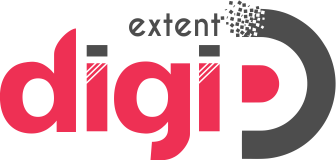When dealing with the topic of ethics in technical writing, it’s important to keep in mind that the definition of ethics differs based on who you ask. For some, ethics are simply matters of one’s values and principals; for others, they’re more focused on specific scenarios or issues that have been framed as ethical issues by outside parties.
Regardless of your particular definition, it’s important to understand the most common ethical concerns in technical writing, because it can be easy to fall into one of them if you aren’t paying attention to your actions.
The Importance of Ethics in Technical Writing
Ethics are important in technical writing because this type of writing can have a significant impact on people’s lives. The decisions made by the writers of technical manuals, for example, can affect the safety of the users of the products.
Furthermore, technical writers often have access to confidential information, which means that they have a responsibility to protect the privacy of their sources. Finally, technical writers need to be aware of their own biases and potential conflicts of interest to maintain objectivity in their work.
One way to do this is to follow these three principles:
- Show restraint when quoting others.
- Avoid discussing your personal opinions unless they are relevant.
- Always make it clear what your qualifications are when discussing matters in which you might have an opinion or bias.
If you follow these three principles, you can be sure that your writing will be free of ethical dilemmas. If not, someone else may decide for you whether or not it is ethical to continue.
Guidelines for Ethical Behavior
The Society for Technical Communication’s Code of Ethics and Professional Practice provides guidelines for ethical behavior for technical communicators. The code is designed to help technical communicators make decisions in the best interests of their clients, employers, and the general public.
The code consists of six sections:
- Respect for People
- Competence
- Honesty
- Confidentiality
- Objectivity
- Accountability
While these may seem like common sense, there are times when it’s difficult to adhere to them.
For example, employees may have their pay determined by how many projects they can complete in a week. If they work long hours, they may be less likely to meet ethical standards for working with clients and other people involved in a project.
Duties and Responsibilities of Professional Writers
As a technical writer, you have a responsibility to produce clear and accurate documentation. Your work should be free of errors, omissions, and ambiguity. Additionally, you should avoid plagiarism and disclose any conflicts of interest.
Furthermore, you should respect the intellectual property rights of others. Finally, you should adhere to any applicable professional codes of conduct.
How to Report an Issue with a Customer?
If you have an issue with a customer, there are a few things you can do to report the issue. First, you should always try to resolve the issue directly with the customer. If that does not work, you can escalate the issue to your manager or supervisor. You can also file a formal complaint with the company’s customer service department.
Finally, if you feel like the issue has not been resolved adequately, you can contact the Better Business Bureau or another third-party organization that handles customer complaints.
Ethical Writers Never Claim They Wrote Material When They Didn’t
There’s a lot of material on the internet that’s been plagiarized. As a technical writer, you must never do this. When you use someone else’s work, be sure to give them credit. It’s also important to be honest about your qualifications. If you say you know how to do something, make sure you really know how to do it. Otherwise, you could mislead your readers.
Finally, always disclose any conflicts of interest. For example, if you’re writing about a product made by a company you have a financial stake in, make that clear to your readers.

Rules About Taking Credit for Work
When you take credit for someone else’s work, you’re not just breaking the rules-you’re also being unethical. Here’s what you need to know about taking credit for someone else’s work.
- If you’re caught taking credit for someone else’s work, you could be subject to disciplinary action from your company or school.
- Not only is it unethical to take credit for someone else’s work, it’s also illegal in some cases.
- If you’re ever unsure about whether or not you can take credit for something, ask yourself if you would feel comfortable if someone else took credit for your work.
- Remember, when in doubt, always give credit where it’s due.
- Don’t let people steal ideas and pass them off as their own. It might seem like a small thing, but you’re actually doing a great service to the world by refusing to let people plagiarize other people’s work!
Plagiarism and The Internet—What is and Isn’t Acceptable
As the internet becomes more and more commonplace, the question of plagiarism and what is considered acceptable use of others’ work has come to the forefront. While it’s true that the internet has made it easier than ever to find and use others’ work, there are still some basic rules of ethics that should be followed.
One of these concerns citation—if you’ve quoted someone or cited their research in a paper, you must give them credit with a footnote or endnote. The same applies if you found an image online that you would like to include in your presentation; if the copyright holder is not named, then they should be cited as unknown.
Likewise, all other sources used in your work must also be cited properly, or at least mentioned as a source where possible.
Conclusion
Ethical technical writing is about more than just being accurate. It’s also about being honest, transparent, and fair. When you’re ethical, you put the needs of your audience first and make sure that your work meets their needs. You also take responsibility for your work and make sure that it’s of the highest quality. Being ethical is essential to being a successful technical writer.



